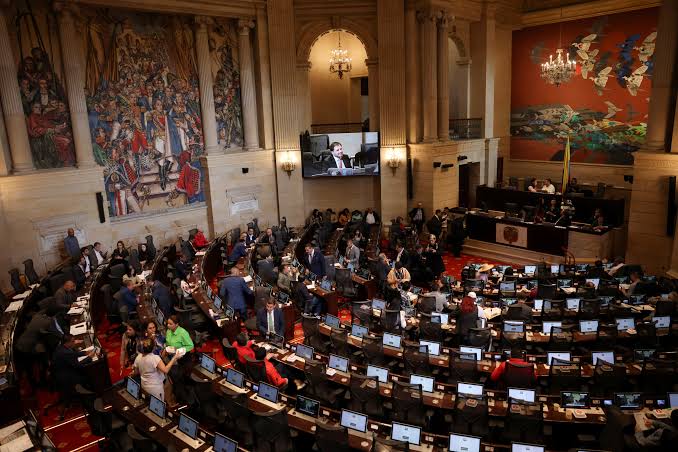By Eniola Amadu
The Colombian government has presented a tax reform bill to Congress, seeking to raise 26.3 trillion pesos ($6.54 billion) to finance its 2026 spending plan, Finance Minister Germán Ávila announced.
The proposal comes as Colombia faces a worsening fiscal crunch, just a year ahead of legislative and presidential elections scheduled for next August.
Ávila said the reform was designed not only to provide resources for next year’s budget but also to ensure fiscal stability through 2027.
READ ALSO: UN warns of soaring child recruitment by armed groups in Colombia
However, the bill’s political prospects remain uncertain. Analysts warn that the upcoming election season could complicate its passage, given President Gustavo Petro’s fragile support base in Congress.
Several lawmakers also view the reform as politically risky, particularly as it would raise taxes at a time when households are already under financial strain.
Petro has previously cautioned that failure to approve the reform would leave his administration with no choice but to finance the 2026 budget through additional borrowing, further burdening public finances.
The new proposal seeks a larger sum than earlier projections. In June, the Finance Ministry’s Medium-Term Fiscal Framework (MTFF) had targeted 19 trillion pesos ($4.73 billion).
Soon after, ratings agencies S&P and Moody’s downgraded Colombia’s debt rating by one notch, citing concerns over fiscal discipline and rising debt levels.
Colombia’s fiscal difficulties have been aggravated by falling revenues. In June, the government suspended the fiscal rule — in place since 2011 to cap spending and debt — forcing the Finance Ministry to raise its 2025 fiscal deficit target to 7.1% of GDP, up from 5.1%. For 2026, the target was set at 6.2% of GDP.
The MTFF, released on 13 June, also raised the 2025 deficit target for the central government to 7.1% of GDP, two percentage points higher than previously forecast. Targets were revised upward to 6.2% for 2026 and 4.9% for 2027.
Analysts caution that the deficit reduction plan relies on uncertain revenue measures, such as the pending tax reform, alongside delayed spending cuts that will largely fall to the next administration after next year’s elections.
The suspension of the fiscal rule and the widening gap between budget forecasts and actual outcomes have further eroded confidence in fiscal policy. The government activated the rule’s escape clause, suspending it for three years to allow for higher deficits.
READ ALSO: Tinubu assures Colombia of swift action on bilateral agreements
Defending the move, Ávila said it was necessary to safeguard economic growth and stability, noting that 86% of the 2025 budget was tied to mandatory spending, leaving limited room for cuts.
Rising interest payments, along with increased transfers to social security and health programmes, have further tightened fiscal space.



